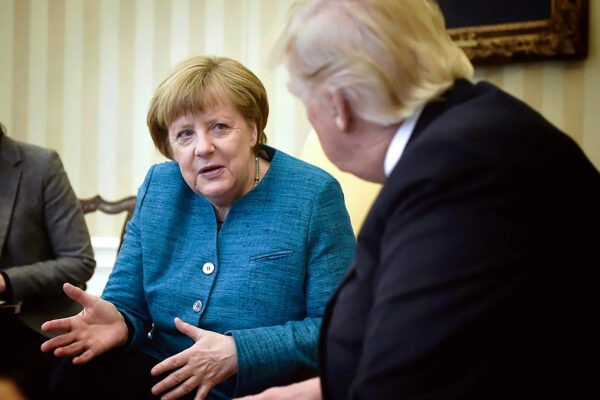
An apt headline from Politico: Trump attacks everyone but Russia.
Since thirteen Russian nationals and three Russian entities were indicted on Friday for violating criminal laws to interfere in the 2016 election, the president has lashed out at CNN, the FBI, Barack Obama, Hillary Clinton and the top Democrat on the House intelligence committee — everyone but the people who tampered with American democracy.
The New York Times reports that Trump’s “conspicuous silence” on Russia’s actions, and his acceptance of Vladimir Putin’s denial, has startled experts and leaves the country leaderless as it fends off more cyberattacks.
Both left-wing blogger Heather Digby Parton and conservative author Max Boot can think of only two ways to explain Trump’s behavior:
- The best-case scenario: The president was an unwitting dupe and is actively covering up the scandal to assuage his fragile ego.
- The worst-case scenario: He conspired with a foreign power to win the election.
If there is a third option, I’d love to hear it.
Merkel looks for successor
The Süddeutsche Zeitung reports that German chancellor Angela Merkel wants Annegret Kramp-Karrenbaue, the prime minister of Saarland, to succeed Peter Tauber as secretary general of the Christian Democratic Union (CDU).
I reported here earlier this month that Merkel reportedly sees Kramp-Karrenbauer as the best candidate to defend her legacy: modernizing the CDU and making it electable to young people, women and urban voters.
The only problem is that Kramp-Karrenbauer lacks national experience. Appointing her head of the party would give her a chance to introduce herself to voters outside Saarland.
New far-right party in France
Florian Philippot, Marine Le Pen’s former right-hand man, has launched his own political party: the Patriots.
Le Monde reports that some 500 members attended the party’s launch in Arras, a city in northern France.
Socially liberal but anti-EU, Philippot had grown out of touch with the National Front’s reactionary electorate, which is why he had to go.
But there could still be a niche for a populist who appeals to blue-collar workers in the deindustrialized north of France now that the Front is moving in a more conservative direction. It calculates it has more to gain from competing with the center-right Republicans.
